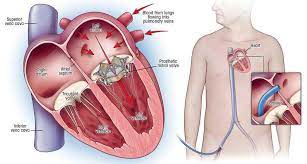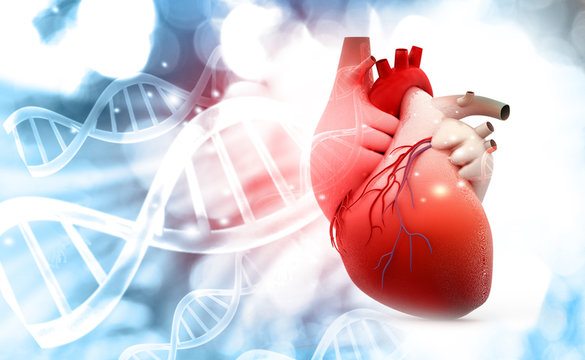Double Valve Replacement and CABG
United Arab Emirates
-
Our Price USD 43945
-
Hospital Price USD 46258
-
You Save : USD 2313
Booking Amount: USD 4395. Pay Remaining 90% at the hospital.
Book NowAdditional Credit
Among the important extras we offer as part of the Additional Credit are the following:
-
Site Tourism For The Patient & Attendant
-
Airport Pick & Drop Service
-
Ambulance service at airport
-
Priority appointments with The Doctor
-
Cancel Easily Anytime with Full Refund
-
Room Upgradation
-
Free Online Doctor Consultation Valued at USD 20
-
Free hotel Stay for 5 to 7 days Accordingly
-
Welcome Kit at Arrival
-
Interpreter
-
Medical Visa Assistance
What is Included?
- Doctor consultation charges
- Lab tests and diagnostic charges
- Room charges inside hospital during the procedure
- Surgeon Fee
- Cost of implant
- Nursing charges
- Hospital surgery suite charges
- Anesthesia charges
- Routine medicines and routine consumables (bandages, dressings etc.)
- Food and Beverages inside hospital stay for patient and one attendant.
What is not Included?
- Extra Radiology Investigations
- Healthcare Professionals Charges of other consultations.
- Other Requested Services such as Laundry etc.
- Additional Pharmaceutical Products and Medicines After Discharge from Hospital.
- Management of Conditions Unrelated to Procedures or Pre-Existing.
- The cost of any additional implants will be in addition to the package cost.
Package Description
Double Valve Replacement / Repair
The mitral and aortic valves, as well as the whole left side of the heart, are replaced in a double valve replacement.
Mitral Valve Replacement: The mitral valve is found on the heart's left side. It's a type of inflow valve. Its function is to enable blood to flow from the left atrium to the left ventricle. If the valve does not fully open or close, surgery may be necessary. It might be difficult for blood to flow through a valve that is too thin. This can cause it to back up, resulting in pulmonary hypertension. Blood might seep back into the lungs if the valve does not shut properly. A congenital flaw, illness, or degenerative disease can all cause this.
A biological valve or a metal artificial valve will be used to replace the damaged valve. Although the metal valve will last a lifetime, it will necessitate the use of blood thinners. The biological valve will last 15 to 20 years, and you will not need to take any blood-thinning medication. Trusted Source reports that the five-year survival rate is around 91 percent. Your age, overall health, any medical disorders you have, and heart function all have a factor in your survival rate.
Aortic valve replacement: The aortic valve is an outflow valve on the left side of the heart. Its function is to enable blood to depart the heart's primary pumping chamber, the left ventricle. Its function also includes closing to prevent blood from leaking back into the left ventricle. If you have a congenital problem or a condition that causes stenosis or regurgitation, you may need surgery on your aortic valve.
A bicuspid valve is the most prevalent form of congenital defect. The aortic valve normally has three leaflets, which are tissue portions. This is called a tricuspid valve. A defective valve has only two leaflets, so it?s called a bicuspid valve.
A recent study found that aortic valve replacement surgery has a 94 percent five-year survival rate. Survival rates depend on: your age, your overall health, Other medical conditions you have, your heart function.
Open Heart Surgery / CABG:
A coronary artery bypass graft involves taking a blood vessel from another part of the body (usually the chest, leg or arm) and attaching it to the coronary artery above and below the narrowed area or blockage.
This new blood vessel is known as a graft. The number of grafts needed will depend on how severe your coronary heart disease is and how many of the coronary blood vessels are narrowed.
A coronary artery bypass graft is carried out under general anaesthetic, which means you'll be unconscious during the operation. It usually takes between 3 and 6 hours. Most people will need to stay in hospital for about 6 to 8 days after having a coronary artery bypass graft.
You should have a follow-up appointment, typically about 6 to 8 weeks after your operation. Recovering takes time and everyone recovers at slightly different speeds. Generally, you should be able to sit in a chair after 1 day, walk after 3 days, and walk up and down stairs after 5 or 6 days. When you go home, you'll need to take things easy for a few weeks. You should be able to return to most of your normal activities after about 6 weeks, including working, driving and having sex. If you have a heavy manual job, you may need to stay off work longer. Most people make a full recovery within 12 weeks.
Risks of surgery
As with all types of surgery, a coronary artery bypass graft carries a risk of complications. These are usually relatively minor and treatable, such as an irregular heartbeat or a wound infection, but there's also a risk of serious complications, such as a stroke or heart attack.
After surgery
After having a coronary artery bypass graft, most people will experience a significant improvement in symptoms such as breathlessness and chest pain, and their heart attack risk will be lowered. But a coronary artery bypass graft isn't a cure for coronary heart disease. If you don't make lifestyle changes, such as eating a healthy diet and exercising regularly, your grafted arteries will also eventually become hardened and narrowed.
Sometimes, a coronary artery bypass graft may need to be repeated or you may need a procedure to widen your arteries using a small balloon and a tube called a stent (coronary angioplasty).
Disease Overview
Heart valve disease
In heart valve disease, one or more of the valves in your heart doesn't work properly. Your heart has four valves that keep blood flowing in the correct direction. In some cases, one or more of the valves don't open or close properly. This can cause the blood flow through your heart to your body to be disrupted.
Signs and Symptoms
Some people with heart valve disease might not have symptoms for many years. When signs and symptoms occur, they might include:
- Whooshing sound (heart murmur) when a doctor is listening to the heart with a stethoscope
- Chest pain
- Abdominal swelling (more common with advanced tricuspid regurgitation)
- Fatigue
- Shortness of breath, particularly when active or lying down
- Swelling of your ankles and feet
- Dizziness
- Fainting
- Irregular heartbeat
Disease Causes
The four heart valves, which keep blood flowing in the right direction, are the mitral, tricuspid, pulmonary and aortic valves. Each valve has flaps (leaflets) that open and close once per heartbeat. If one or more of the valves fail to open or close properly, the blood flow through your heart to your body is disrupted.
Heart valve disease may be present at birth (congenital). It can also occur in adults due to many causes and conditions, such as infections and other heart conditions.
Heart valve problems include:
Regurgitation. The valve flaps don't close properly, causing blood to leak backward in your heart. This commonly occurs due to valve flaps bulging back, a condition called prolapse.
Stenosis. The valve flaps become thick or stiff and possibly fuse together. This results in a narrowed valve opening and reduced blood flow through the valve.
Atresia. The valve isn't formed, and a solid sheet of tissue blocks the blood flow between the heart chambers.
Diagnosis:
Your doctor will conduct a physical examination and listen for a heart murmur, a possible sign of a heart valve condition. You might have several tests to diagnose your condition.
Tests might include:
- Echocardiography: Sound waves directed at your heart from a wandlike device (transducer) produce video images of your heart in motion. This test assesses the structure of your heart, the heart valves and the blood flow through your heart.
- Transesophageal echocardiogram: a small transducer attached to the end of a tube is inserted down the tube leading from your mouth to your stomach (esophagus). This test helps your doctor get a closer look at the heart valves than is possible with a regular echocardiogram.
- Electrocardiogram (ECG): Wires (electrodes) attached to pads on your skin measure electrical impulses from your heart. An ECG can detect enlarged chambers of your heart, heart disease and abnormal heart rhythms.
- Chest X-ray: A chest X-ray can help your doctor determine whether the heart is enlarged, which can indicate certain types of heart valve disease. A chest X-ray can also help doctors determine the condition of your lungs.
- Cardiac MRI: A cardiac MRI uses magnetic fields and radio waves to create detailed images of your heart. It can determine the severity of your condition and assess the size and function of your lower heart chambers.
- Exercise tests or stress tests: Different exercise tests help measure your activity tolerance and monitor your heart's response to physical exertion. If you can't exercise, you might be given medications that mimic the effect of exercise on your heart.
Disease Treatment
Heart valve disease treatment depends on your symptoms, the severity of the condition, and whether your condition is worsening.
A doctor trained in heart disease (cardiologist) will provide your care. Treatment might include monitoring your condition with regular follow-up visits. You might be asked to:
- Make healthy lifestyle changes
- Take medications to treat symptoms
- Take blood thinners to reduce the risk of blood clots if you have a certain irregular heart rhythm called atrial fibrillation
Surgery or other procedures:
You might eventually need heart valve surgery to repair or replace the diseased heart valve even if you don't have symptoms. If you need surgery for another heart condition, your doctor might repair or replace the diseased valve at the same time.
Heart valve surgery is usually performed through a cut (incision) in the chest. Doctors sometimes do minimally invasive heart surgery, which involves smaller incisions than those made for open-heart surgery. In some medical centers, doctors perform robot-assisted heart surgery, a type of minimally invasive heart surgery in which surgeons use robotic instruments to conduct the procedure.
Heart Valve replacement: If the valve can't be repaired, surgeons might remove the damaged valve and replace it with a mechanical valve or a valve made from cow, pig or human heart tissue (biological or tissue valve).
CABG: A coronary artery bypass graft involves taking a blood vessel from another part of the body (usually the chest, leg or arm) and attaching it to the coronary artery above and below the narrowed area or blockage.
This new blood vessel is known as a graft. The number of grafts needed will depend on how severe your coronary heart disease is and how many of the coronary blood vessels are narrowed.
Information related to Treatment
Package Details
Days in Hospital
5 Days
Days in Hotel
*
16 Days
Room Type
Private
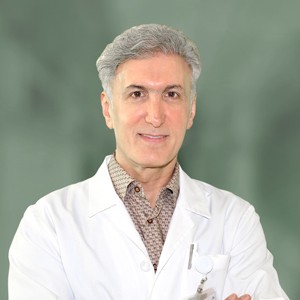
Treating Doctor
Dr. Seyedbagher Tabatabaei
Interventional Cardiologist- Congenital Heart Disorder CHD, Heart Attack Treatment, Structural Heart Disease Interventions
Iranian Hospital, Dubai Dubai, United Arab Emirates
26 Years of Experience
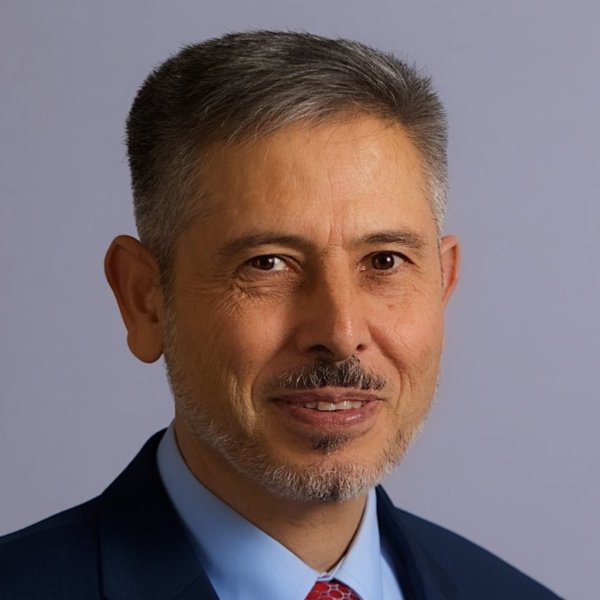
Treating Doctor
Dr Omar Hallak
Interventional Cardiologist- Coronary artery bypass graft (CABG) surgery, Cardiac Arrhythmias, Bradycardia, Blocked Arteries, Tachycardia, Angina, Atherosclerosis
Kings College Hospital Dubai Dubai, United Arab Emirates
20 Years of Experience
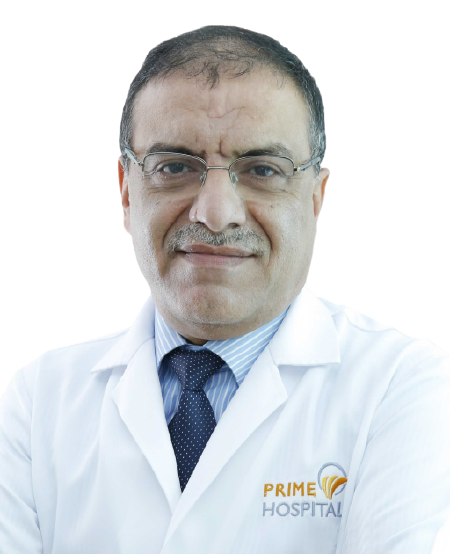
Treating Doctor
Dr. Ahmed Ismail Fayadh Al - Jeboury
Interventional Cardiologist- Coronary Angiography, High blood Pressure, Carotid Angioplasty And Stenting, Coronary Angioplasty, Angioplasty Stenting, Coronary Artery Disease, Cardiac Arrhythmias, Bradycardia, Blocked Arteries, Tachycardia, Angina, Holter Monitoring, Cardiac catheterizations, Carotid Angioplasty And Stenting, Holter Monitoring, Coronary Angioplasty
Prime Hospital, Dubai Dubai, United Arab Emirates
20 Years of Experience
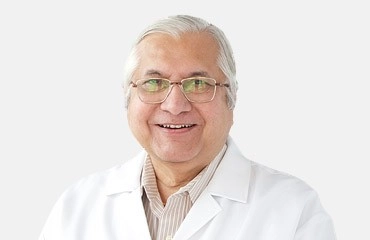
Treating Doctor
Dr. Upendra. J. Shah
Interventional Cardiologist- Coronary Angiography, Coronary Angioplasty, Coronary Angioplasty
Canadian Specialist Hospital, Dubai Dubai, United Arab Emirates
34 Years of Experience
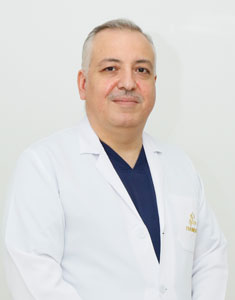
Treating Doctor
Dr. Ahmed Zohdi Al Katma
Interventional Cardiologist- Valvular surgery, Coronary Angiography, Balloon Angioplasty, Heart Failure Surgery, Cholesterol Management, Complex Coronary Angioplasty, Hypertension Treatment, Angioplasty Stenting, Chest Pain Treatment, Clinical cardiology, Coronary Artery Disease, Cardiac Arrhythmias, Bradycardia, Tachycardia, Dyslipidemia, Atherosclerosis & Heart At, Hypertension Treatment, Chest Pain Treatment
Thumbay Hospital, Dubai Dubai, United Arab Emirates
19 Years of Experience
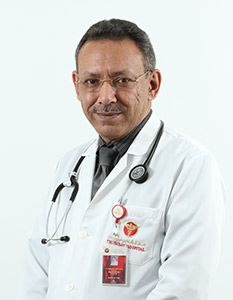
Treating Doctor
Dr. Ehab Esheiba
Cardiac Surgeon- Valvular surgery, Heart Failure Surgery, Hypertension Treatment, Clinical cardiology, Coronary Artery Disease, Cardiac Arrhythmias, Dyslipidemia, Hypertension Treatment
Thumbay Hospital, Dubai Dubai, United Arab Emirates
21 Years of Experience
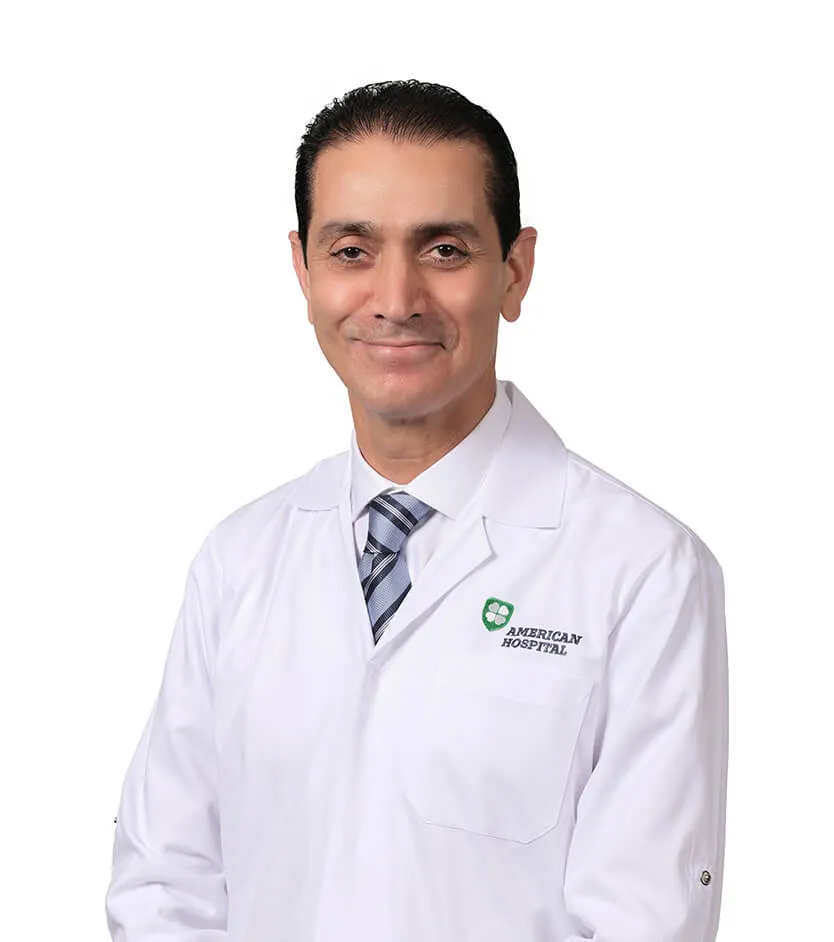
Treating Doctor
Heidar Arjomand
Interventional Cardiologist- Transcatheter Aortic Valve Implantation (TAVI), ASD closure, Atrial Septal Defects (ASDS), Carotid Angioplasty And Stenting, TAVI/TAVR, Coronary interventions, Carotid Angioplasty And Stenting
American Hospital, Dubai Dubai, United Arab Emirates
15 Years of Experience
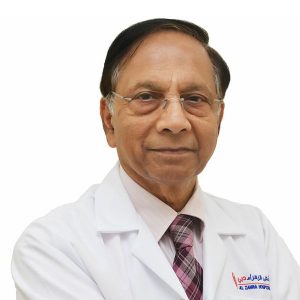
Treating Doctor
Dr. Rajeev Lochan
Interventional Cardiologist- Pacemaker Implantation, Implantable Cardioverter-Defibrillators (ICDS), Pacemaker Implantation, Heart Attack Treatment, Non Invasive Cardiology, PCI (Percutaneous Coronary Interventions), Holter Monitoring, Complex coronary interventions, Complex coronary interventions, Pacemaker Implantation, Pacemaker Implantation, Peripheral vascular intervention, Holter Monitoring, Pacemaker Implantation
Al Zahra hospital, Dubai Dubai, United Arab Emirates
30 Years of Experience
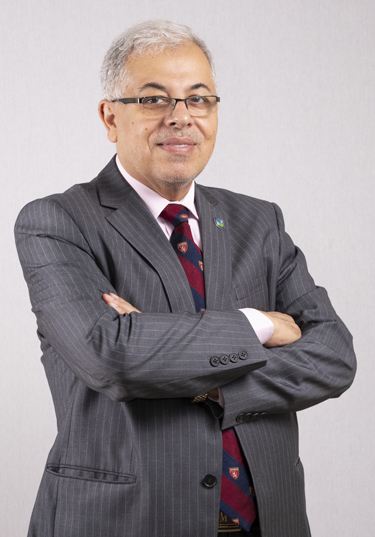
Treating Doctor
Dr. Waleed Kadro
Interventional Cardiologist- Carotid Angioplasty And Stenting, Cardiac Arrhythmias, surgical clipping of intracranial aneurysms, peripheral interventions, Complex coronary and adult interventions, Carotid Angioplasty And Stenting, Carotid intervention
Zulekha Hospital Sharjah Dubai, United Arab Emirates
23 Years of Experience
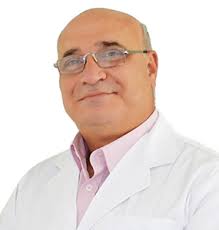
Treating Doctor
Dr. Wael Richane
Cardiovascular surgeon- Pediatric Cardiology, Minimally Invasive Cardiac Surgeon, Minimally Invasive Cardiac Surgeon, Cardiovascular and Cardiothoracic Surgery, Thoracic Surgery
Zulekha Hospital Sharjah Dubai, United Arab Emirates
21 Years of Experience
Similar Packages
Frequently Asked Questions
Many hospitals in the United Arab Emirates provide heart double valve replacements. Some of the most well-known hospitals in the United Arab Emirates for heart double valve replacement are listed below: 1-NMC Speciality Hospital, Al Nahda 2-Canadian Specialist Hospital 3-Zulekha Hospital 4-American Hospital 5-NMC Royal Hospital 6-Medeor 24X7 Hospital
The lowest price for a heart double valve replacement in the United Arab Emirates is USD 46,000, although this depends on a number of factors. The United Arab Emirates has a large number of JCI- and TEMOS-certified multispecialty facilities that are highly sought after for treating heart double valve replacement patients from abroad.
The patient must remain in the nation for an t 21 days after being released from the hospital in order to fully recuperate. It is advised that patients stay for this length of time in order to finish all required follow-ups and control tests and make sure the surgery went well.
The price of a heart double valve replacement in the United Arab Emirates could vary depending on the hospital. Many hospitals include pre-operative patient investigations in the treatment package at no expense to the patient. The costs associated with hospitalisation, surgery, nursing care, medications, and anaesthesia are typically included in the treatment cost. The cost of a heart double valve replacement in the United Arab Emirates may go up if a patient needs to stay longer in the hospital owing to delayed recovery, a new diagnosis, or postoperative problems.
In the United Arab Emirates, heart double valve replacement is available in numerous cities, including the following: Abu Dhabi, Dubai, and Sharjah
In the United Arab Emirates, a number of physicians are accessible for telemedicine consultations with patients in need of heart double valve replacement. Some of the top physicians in the United Arab Emirates for heart double valve replacement are listed below: Dr. Luc J M T Tambeur, Dr. Kamal Al Abdi, Dr. Ala Eldin Farasin, Dr. Girishchandra Varma.

